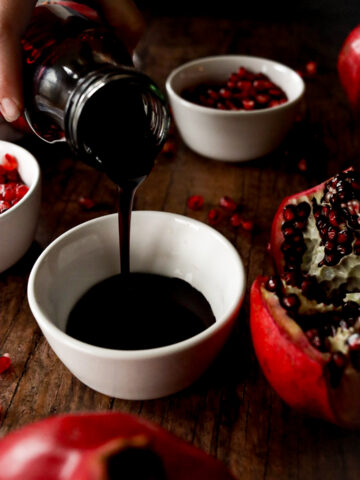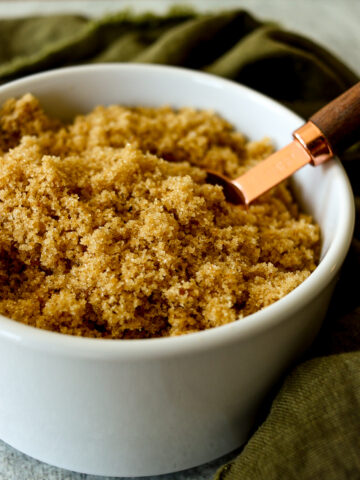Learn how to make homemade jerky with venison or beef, perfect for the winter season! Discover the benefits of Wallaby Goods for long-term storage, the best marinade ingredients, and tips for using a dehydrator or smoker.
Winter is in full swing here on the homestead, which means one thing—archery season! This year, the hunters in our family successfully harvested two deer, and one of our favorite ways to preserve and enjoy the meat is by making venison jerky. You can follow the same practices for those who prefer beef and create this delicious snack at home.
Homemade jerky is the ultimate winter snack—perfect for long days of chores, hiking adventures, or cozying up by the fire with a savory treat. And thanks to Wallaby Goods, storing our jerky long-term has never been easier or more effective.
Let’s dive into why making your jerky is a game-changer and how you can whip up a batch bursting with flavor and perfect for winter storage.
Why Make Homemade Jerky?
Store-bought jerky has nothing on the homemade variety. When you make it yourself, you control every aspect:
- Ingredients: Say goodbye to preservatives, artificial flavors, and excessive sodium.
- Flavor: You can tailor the marinade to your taste—savory, spicy, or slightly sweet.
- Quality: Use fresh, high-quality meat, whether venison from your homestead or beef from a trusted source.
- Cost-Effective: Making jerky at home is often cheaper than prepackaged, mainly when you harvest meat.
- Sustainability: For homesteaders, it’s a great way to reduce waste and maximize harvest.
Plus, jerky is a nutrient-dense, protein-packed snack perfect for fueling long days of winter chores or outdoor adventures.
How Wallaby Goods Helps with Long-Term Storage
Jerky is only as good as its storage, especially when making large batches to last through the season. Enter Wallaby Goods' resealable food storage bags—the ultimate solution for keeping your jerky fresh and flavorful.
- Vacuum Seal for Freshness: These bags lock out air and moisture, preserving your jerky.
- Long-Term Storage: Whether you're storing jerky for weeks or months, Wallaby Goods bags keep it fresh without freezer burn.
- Grab-and-Go Convenience: Their resealable design makes it easy to take a handful of jerky, whether heading to the barn or the backwoods.
- Durable and Reliable: These bags are built to withstand the test of time, ensuring your hard work doesn’t go to waste.
Breaking Down the Ingredients
The magic of homemade jerky lies in its marinade. Here’s a closer look at some key ingredients and their benefits:
Soy Sauce: Adds a rich umami flavor and helps tenderize the meat. You can also substitute coconut aminos for a gluten-free option.
Worcestershire Sauce: Layers in a tangy, savory depth that enhances the meat's natural flavor.
Garlic and Onion: These kitchen staples provide a robust, aromatic base for the marinade.
Hot Pepper Flakes: Bring the heat! Adjust the amount to suit your spice tolerance, or skip it for a milder batch.
Homemade jerky is more than just a snack—it’s a tradition on our homestead. Making it, from harvesting the meat to mixing the marinade and storing it in Wallaby Goods bags, brings the whole family together.
Optional Sweeteners: A touch of honey or brown sugar can balance the savory elements and create a slightly caramelized finish.
Each ingredient plays a role in transforming plain slices of meat into a flavorful, satisfying snack perfect for winter days.
Dehydrator vs. Smoker: Which is Better?
Both methods are fantastic for making jerky, and each has its advantages.
- Precision: Dehydrators are easy to set and forget, offering consistent, even drying.
- Convenience: They’re lightweight, portable, and great for indoor jerky.
- Neutral Flavor: The flavor of the jerky comes entirely from your marinade, with no added smokiness.
Smoker:
- Bold Flavor: Smoking infuses the jerky with a rich, smoky taste that’s hard to replicate.
- Versatility: To customize the flavor, you can experiment with wood chips (hickory, applewood, mesquite).
- Outdoor Fun: If you love cooking outdoors, a smoker is an excellent choice for jerky-making.
Whichever method you choose, slice your meat evenly and keep an eye on the drying process to ensure perfectly chewy, not-too-dry jerky.
Homemade Jerky: A Homestead Tradition
Try homemade jerky this winter, whether you're a seasoned homesteader or just exploring the world of DIY food preservation. It’s a delicious, nutritious way to enjoy the fruits of your labor and keep your pantry stocked with satisfying snacks all season.
Enjoy Homemade Jerky This Winter
Whether you’re using venison, beef, or another meat of your choice, homemade jerky is the ultimate homestead snack. Partnered with the reliable storage of Wallaby Goods, you’ll have fresh, flavorful jerky ready for whatever the winter season brings.
Drop a comment below: What’s your favorite jerky flavor? Share your tips and stories—we’d love to hear how jerky fits into your homestead life!
PrintHomemade Jerky - Beef or Vension
Description
It is a delicious protein snack for all of your family to enjoy. Make your venison or beef jerky from sweet to spicy, and start snacking today.
Ingredients
- 2 lbs Venions or lean beef (top round, bottom round, sirloin, or flank steak)
- ⅓ cup soy sauce or aminos
- ⅓ cup Worcestershire sauce
- 1 tbsp brown sugar or honey (optional)
- 1 tsp garlic powder
- 1 tsp onion powder
- 1 tsp smoked paprika
- ½ tsp black pepper
- ½ tsp red pepper flakes (optional, for heat)
Instructions
- Trim all visible fat from the beef (fat can spoil during storage).
- Slice the beef into thin strips, about ⅛ to ¼ inch thick. To make slicing easier, partially freeze the meat for 1-2 hours beforehand.
- In a large bowl, combine soy sauce, Worcestershire sauce, brown sugar, garlic powder, onion powder, smoked paprika, black pepper, and red pepper flakes.
- Add the beef strips to the marinade, ensuring all pieces are coated.
- Cover and refrigerate for at least 4 hours, preferably overnight, for maximum flavor.
- Preheat your dehydrator to 160°F or oven to its lowest temperature (typically around 170°F). Arrange the beef strips in a single layer on dehydrator trays or a wire rack placed over a baking sheet. Avoid overlapping. Dehydrate for 4-8 hours, depending on thickness, until the jerky is dry but slightly pliable.
- The jerky should bend and crack slightly but not snap.
- Allow the jerky to cool completely. Store in an airtight container or vacuum-sealed bag. It can last 1-2 weeks at room temperature or up to 3 months in the fridge.
Notes
For added flavor, try using liquid smoke or a splash of apple cider vinegar in the marinade
Always use lean meat to avoid spoilage.
Rotate trays or racks halfway through drying for even dehydration.
This jerky is perfect for homestead snacking or on-the-go energy!





Leave a Reply